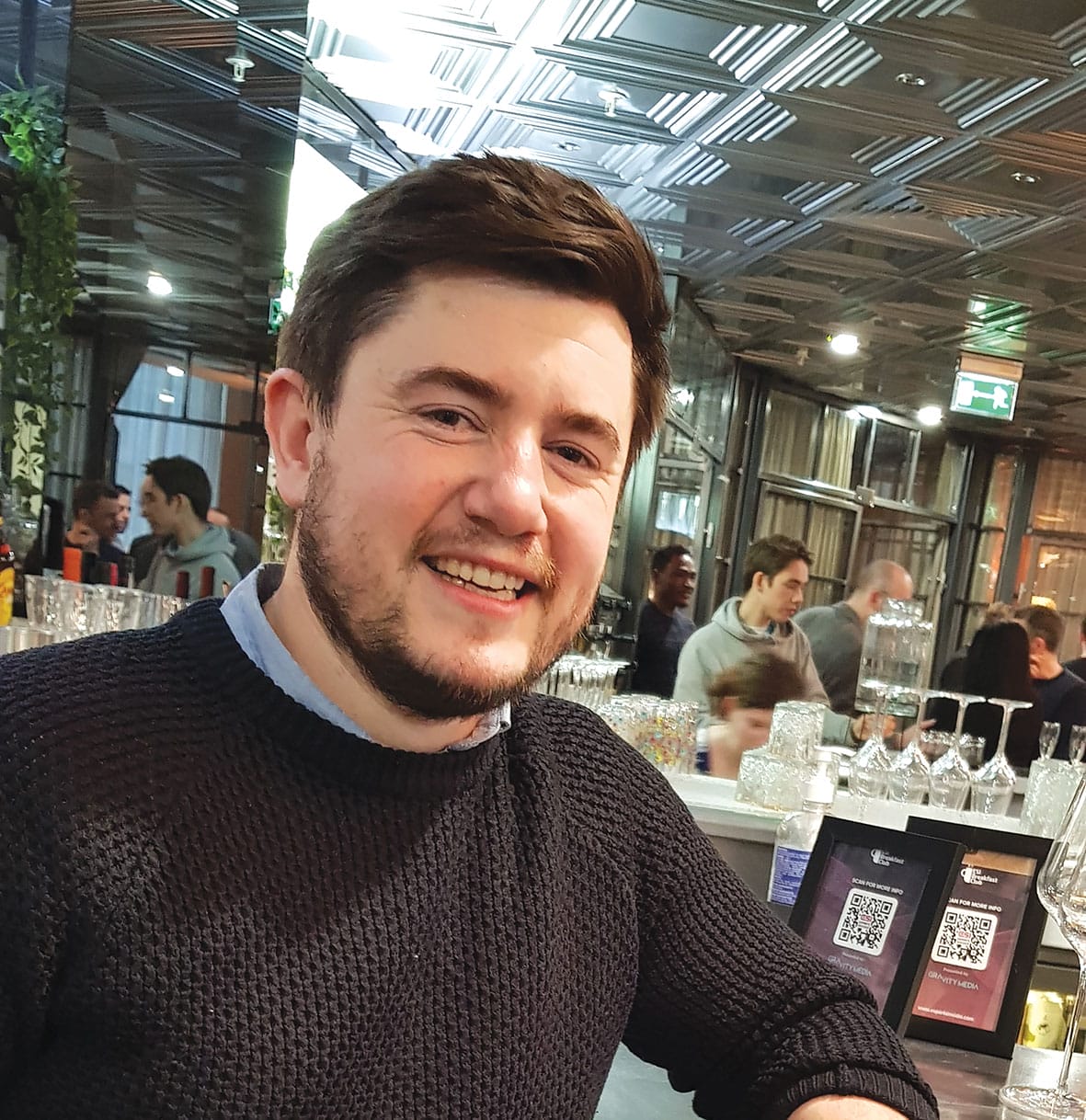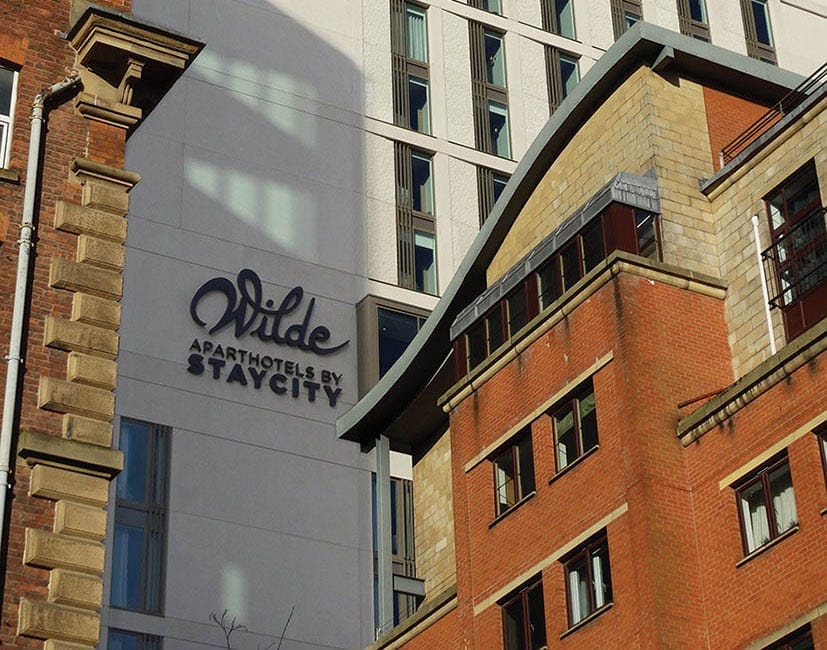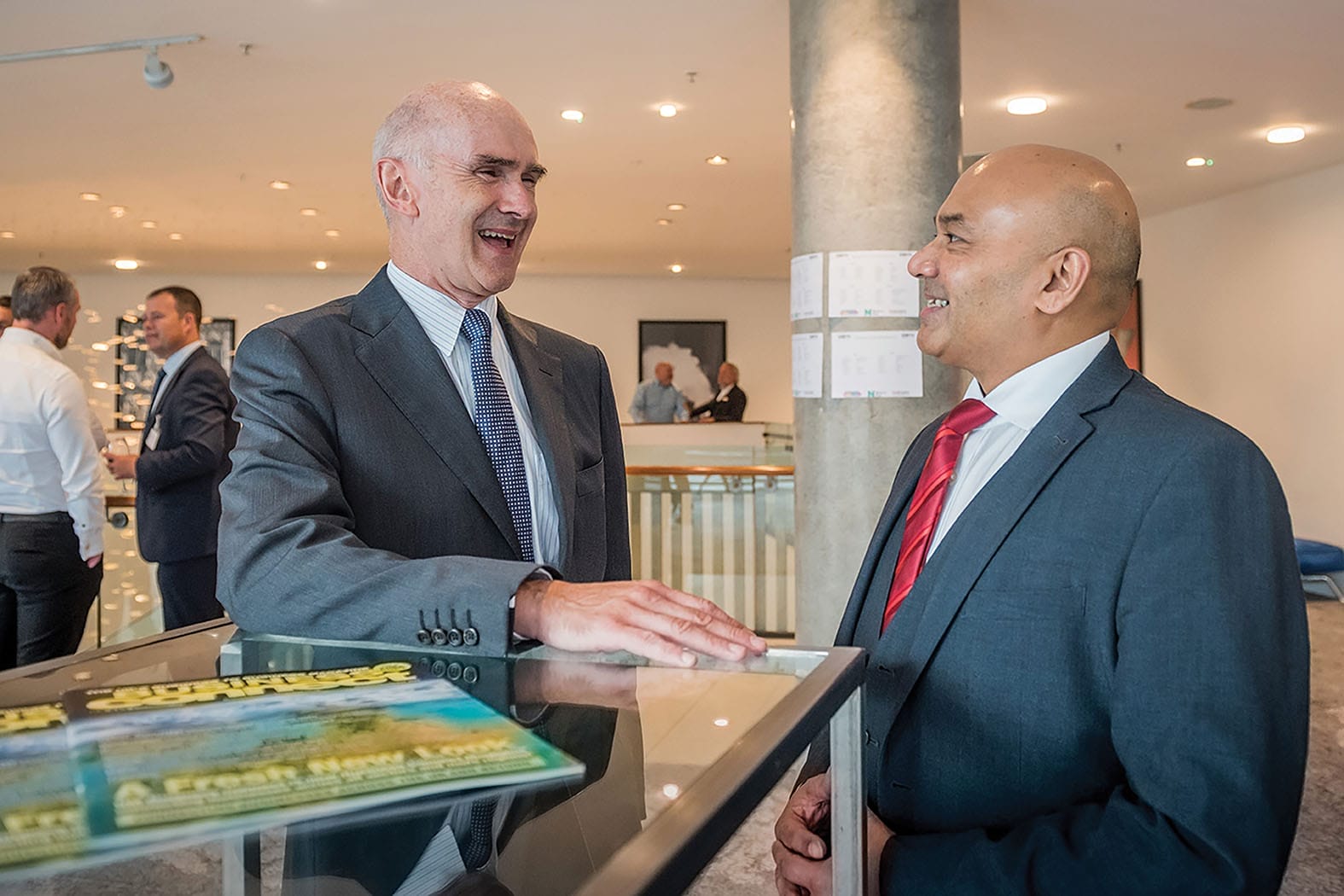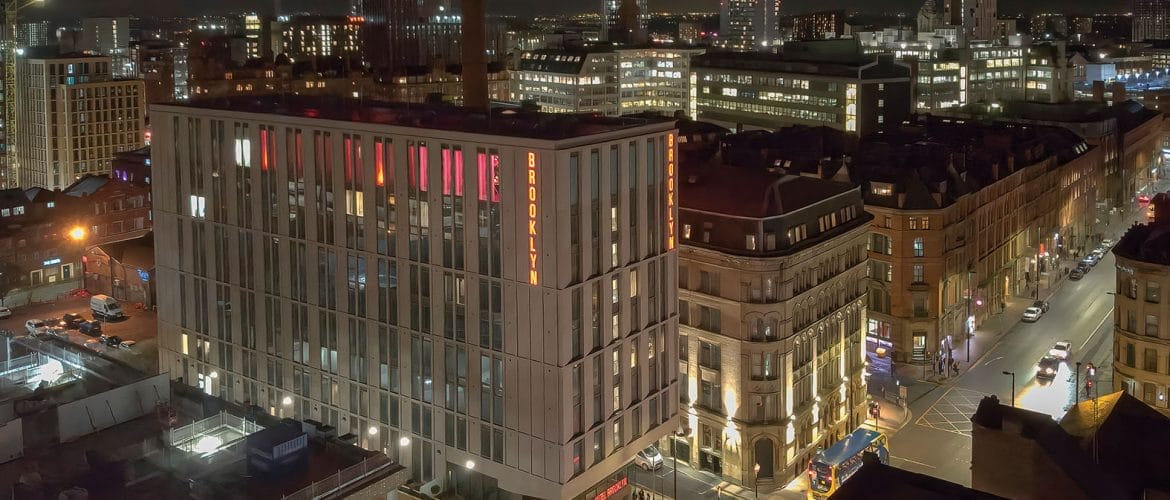Business Connect recently had a coffee with Peter Gibson, co-founder and director of Grindsmith Coffee Roasters, based at 3 sites across Manchester and Salford. We looked at the journey the business has made to date, along with the ups and downs of recent years, navigating problems mirrored across the whole hospitality sector.
Peter – tell us about your business journey?
“Myself and my business partner Luke Tomlinson started the business in 2014 with the intention to increase the number of speciality coffee outlets in Manchester. To fund the launch we did a kickstarter campaign – one of the first I believe to fund a coffee outlet – and we opened a little garden/office in Greengate Square near Manchester Cathedral. We got an opportunity then to open a pop-up in Manchester’s first co-working space, and that pretty much cemented us as a growing business with our Deansgate store. From there we took on investment and opened Media City. Then in 2018 we started roasting our own coffee beans, and pretty soon after that we closed Deansgate as the Great Northern was being redeveloped, moving the outlet over to Bridge Street.”
So how many outlets do you have now?
“Three in total. Two in Media City – one at The Garage which is our flagship store, plus we’ve partnered with HOST, Salford’s Home Of Skills & Technology, running the catering space on the 7th floor of Blue. The Pod has moved from Greengate Square to Pollard Street in the Northern Quarter. Unfortunately our Bridge Street outlet didn’t survive Covid.”
Tell us about your supply chain, particularly now you roast your own coffee beans?
“The heart and passion we felt about the process saw us travelling to Colombia to meet some farmers with a view to working directly and supporting directly the people at the heart of our business. We wanted to cultivate a direct relationship, without working through importers or third parties.”
Did you have help in this process?
“After purchasing our first coffee roasting machine in May 2018, we hired in a consultant for a week to help us with training and operation of the new kit. It turned out that the consultant had a part ownership of a Colombian coffee farm. It was from there we decided to work with him on building those direct relationships. He suggested putting a trip together to travel to Colombia where he’d introduce us to a number of farmers and we can taste the beans at source.
“So, in November 2018 we packed our bags and met our consultant in Colombia where he introduced us personally to 15 farms, but we actually tasted coffee from over 100 farms whilst we were out there. From there we have now got a personal relationship with the majority of suppliers of our coffee beans. This means we can ensure the farmers get the maximum payment for their produce, making sure they are treated fairly and honestly, and it also guarantees quality and freshness for the coffee beans through the whole journey from origin to the espresso served in our shops.”
Tell us more about the brand – where did the name Grindsmith come from?
“We were searching for another term describing someone perfecting their craft in coffee. The word Barista wasn’t right for us, but the idea of a ‘smith’, like a goldsmith or blacksmith for example, appealed very much. ‘Coffeesmith’ had already been taken, so we opted for Grindsmith.”
I believe you have an association with Nescafé. Can you tell us more about this?
 “This was actually a response through a message on LinkedIn. Nescafé’s project manager for Azera sent me a message asking if I was interested in a chat about a forthcoming project they had planned which involved working with an independent coffee roaster. It turned out that they were wanting to launch their first ‘craft’ coffee, something that was way and above the best tasting instant coffee they could produce. We were really keen, but the end result had to be of a sufficient quality before we were happy to sign off on it. It all happened through lockdown by zoom, with samples sent out and tasting happening remotely. All the design work was also completed through zoom.
“This was actually a response through a message on LinkedIn. Nescafé’s project manager for Azera sent me a message asking if I was interested in a chat about a forthcoming project they had planned which involved working with an independent coffee roaster. It turned out that they were wanting to launch their first ‘craft’ coffee, something that was way and above the best tasting instant coffee they could produce. We were really keen, but the end result had to be of a sufficient quality before we were happy to sign off on it. It all happened through lockdown by zoom, with samples sent out and tasting happening remotely. All the design work was also completed through zoom.
“At the end of the process though we ended up with creating an instant coffee called ‘Explorer’ that actually had quality, and what we would class as a specialty coffee experience within it. The process ensures our farmers are rewarded correctly for producing the speciality coffee beans that go into the final product, and the difference for Nescafé is that they now have a speciality coffee product that sits alongside their commodity coffee lines. Speciality coffees still only account for 6% of the UK market, so to have a product like Explorer sat on shelves being accessible to the whole of the UK is fantastic. Not all coffees are the same, and it’s a wonderful thing for all of us as coffee makers that the potential for a mass market to taste and understand that difference is pretty amazing for the whole coffee industry.”
How did you manage as a business when the pandemic appeared?
“We actually had a very hard time as a business in 2019 when we took on the Bridge Street store. We took on a lot of debt to launch the site and we were expecting turnover to be the highest within our outlets, but in fact when the store did open we simply didn’t get the customers. Our plan was to close our Deansgate store – which had to close due to the work taking place on the Great Northern building – on 31 December 2018, and move the staff to our Bridge Street site on 4 January, however, due to building delays the store didn’t open until early March. We kept our staff on full pay during the delays, and by the time the doors opened we needed the launch to be a bang. Unfortunately it was a fizzle!
“Financially this was very hard, and we kept on going though throughout 2019, mainly due to the investment put in so far, also because when we launched our site at Media City, it was only turning over £250 per day, but now after 5 years it’s a different story, with no seats available on the weekends and queues out of the doors. This was a very tough time for the business, and it also caused internal issues with our two successful sites suffering because they were essentially supporting financially a store that cost so much to set up and simply didn’t perform as expected. When the first lockdown happened it actually didn’t have the same impact on us as on other hospitality businesses because for the previous year we had been in full survival mode. With the lockdown came support for hospitality businesses, and our mindset changed.
“We were in the same boat as the whole sector. Grants were available, the furlough scheme helped us retain the staff that had worked so hard for us for years. My email inbox went quiet, and we were busy supporting the sites which were operating take-out services at reduced staffing levels. In 2016 we had started work on an app that flashed up our customer’s orders on a screen when they were ready to collect. We developed this so customers waiting outside could see how things were progressing with their orders inside.
“In fact, because there were no customers inside, the staff were free to work better, fulfilling orders and delivering them to the customers outside. We also started working with Deliveroo, which was a great success, and the digital part of our customers’ experience ordering online through apps became much more established. During the past 2 years we have rebuilt ourselves and learned to work differently. Bridge Street was finally closed in Autumn 2021 but the business with our 3 sites plus Roastery is looking very positive now.”
What can you highlight out of your business journey that you find important?
“One lesson is to not underestimate your own tenacity, especially in the face of business challenges. Something I’d always say would be through the toughest of challenges you’d achieve the greatest lessons. 2019 was a personal challenge for me. It was the point where I did have self-doubt, and it was so difficult for myself and Luke to maintain a clear focus when the tide was coming in and all you could think of was how to keep the business afloat.
“Looking back I think that sometimes moving slower is not necessarily a bad thing in business, also being responsive rather than reactive is important. At the same time though if you see something that is negatively impacting your business be quick to take action. Personal investment into your business is crucial. You have to give 100% of yourself into it. Most people may think they are invested wholly, but it takes massive challenges that reveal how much you are actually invested, and it’s those challenges that bring you beyond what you think is 100% and realise actually how strong we are in the face of adversity.”
Find out more about Grindsmith – visit grindsmith.com or email info@grindsmith.com




